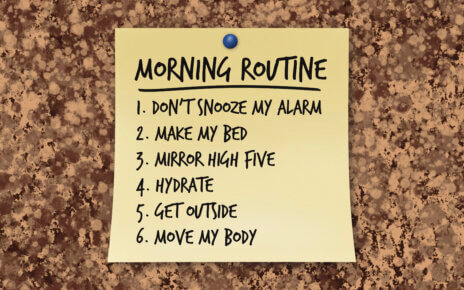“Sleep on it” isn’t just an old saying. Sleep enables us to feel recharged, full of energy, and generally in a better mood. The benefits to sleep are endless. Adequate sleep is a key part of a healthy lifestyle, benefiting your heart, mind, and weight. Yet, why is it that our generation chooses to put sleep below all other responsibilities?
This generation’s lack of sleep is so severe that a study done by Trending Machine national poll found that millennials aged 18 to 34 are, in fact, much more likely than those 55 or older to forget what day it is. This is due to stress and the lack of sleep.
Jenna Hersh, a junior economics and finance major, said, “I think that in this generation it is drilled into our heads how important it is to live your life, get a good job, and have great friendships that we sometimes choose all of that over sleep…in reality though we are being slowed down by not getting enough sleep.”
Millennials are told time and time again to not waste their youth, to live life to the fullest. The playful saying YOLO has in a way defined this generation. This incredibly ambitious and driven generation needs to remember you cannot live life to the fullest if you are not able to function after a good nights sleep.
Arianna Huffington, editor-in-chief of the Huffington Post, puts our generation and sleep into perspective by explaining that when our smartphones reach ten percent battery we scramble to get them to a charger. Yet when we ourselves reach ten percent, we keep moving forward.
Sleep does wonders for the body that you would not even expect. For example, it improves memory. It is known that practice makes perfect, but what is unknown is that sleeping will help that go even further. While you sleep your body goes through a process called consolidation in which new skills can be committed to memory.
Sleep can also improve your grades. A study conducted at the University of Georgia found that college students who got six hours of sleep or less had a lower GPA than those who averaged eight hours of sleep a night. Rachel Fox, senior who majors in English P-3 with an endorsement in special education said,
“During the week I force myself to go to sleep at a reasonable hour.” Rachel said that she knows how important sleep is to her being able to perform her best during the school week.
Although some students, like Rachel, see the importance of sleep, many do not. Nearly thirty percent of all Americans are sleep deprived, some Americans getting as little as four to five hours of sleep every night. One of the unexpected side effects of sleep deprivation is premature aging. The results are drastic. Deep set wrinkles; dark permanent under eye circles; sagging skin due to the lack of cortisol; thinner skin; and duller hair. Still want to forgo those eight hours of sleep?
While recharging your mind and body, sleep also spurs creativity and sharpens attention. Researchers at Harvard University and Boston College found that people seem to strengthen the emotional components of a memory during sleep, which may help stimulate the creative process.
Yet, with all the positives sleep can offer, this age group is still more focused on achieving what they have their heart set on. Mariola Cieloch, senior early history education major with an endorsement in special education said this about her lack of sleep,
“My goals are to do the best I can on all my assignments, plus extra-curricular activities take up that much more of my time. I would say that I have reprogrammed my body to function on five to six hours of sleep a night.”
Cieloch also said, “It was difficult in the beginning, but with time I have gotten used to it. I believe all college students don’t get enough sleep and that it is just a component of college that students learn after their first few weeks”.
Although almost all college students can agree they have in someway changed their sleeping patterns, this should not necessarily be tolerated. Research done by Neuroscientist Sigrid Veasey of the University of Pennsylvania found that irregular sleep patterns during the week can actually shrink people’s brains over time.
The researchers studied mice and gave them similar sleep patterns to that of shift workers. They found that the mice wound up losing twenty-five percent of the neurons in the part of the brain that controls attention and focus, and this damage proved irreversible. The researchers plan to take their study further to better connect this to human brains. It is still scary to think that these irregular sleep patterns in replace of pursuing goals could do the opposite of what was intended.
History Instructor Melissa Ziobro admitted that even she only averages about six hours of sleep per night. But knowing she does get less than eight does not stop her from greeting every day full of energy.
“I think you have to get up well before class. If you slide out of bed and into the classroom, your body may not get the message that you mean business. Leave your body time to wake up. Make sure you have a good meal; you can’t start a car without gas, right?” Ziobro said.
Ziobro teaches 8:30’s every morning. If in the morning you are dreading that 8:30 class, remember it is an hour and fifteen minutes closer to your goals.
“Being somewhere you want to be in the morning makes you long for your bed less. Me, for example, I sincerely love every second that I am in the classroom.” she said.
So try to get as much shut eye as you can. Keep in mind that if you just put the books down at a reasonable hour you will wake up feeling more recharged the next day. A paper written after seven hours of sleep is going to be a lot better than a paper written until seven in the morning.
IMAGE TAKEN from Collegehumor.com




